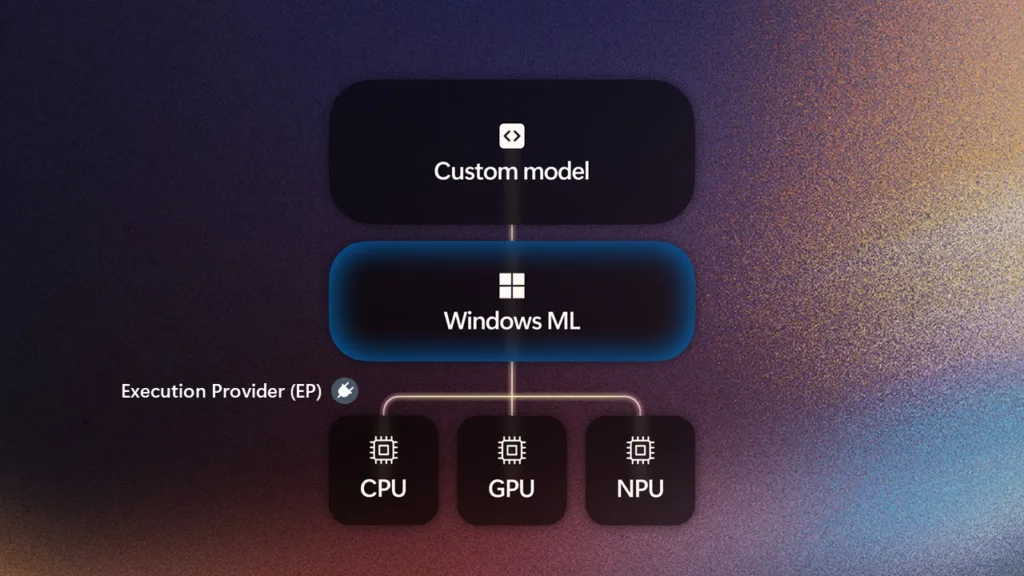Windows ML: Microsoft opens the floodgates of local AI for Windows apps
Microsoft has announced the general availability of Windows ML, its local AI inference platform for Windows applications.
Available on all devices running Windows 11 24H2 (and later), this solution aims to make it easier to integrate artificial intelligence into software while ensuring performance, privacy, and energy efficiency.
Windows ML: A Bridge Between AI and PC Hardware
Initially unveiled in 2018 with Windows 10, Windows ML has been redesigned to leverage the latest hardware advancements. The premise is straightforward: Microsoft’s partners (Intel, AMD, Qualcomm, etc.) develop execution providers, which are modules allowing AI to run optimally on the right hardware components.
Specifically:
- GPUs handle intensive tasks (like AI graphic rendering),
- NPUs (Neural Processing Units) optimize consumption for ongoing tasks,
- CPUs provide flexibility for lighter processes.
Microsoft describes this architecture as a hardware abstraction layer that simplifies developers’ work while optimizing the resources of the PC.
Adobe, McAfee, Topaz: The First to Integrate Windows ML
Several major publishers are already adopting Windows ML in their upcoming updates:
- Adobe Premiere Pro and After Effects will utilize NPUs for features like semantic search, audio tagging, and automatic video cut detection.
- McAfee will rely on Windows ML to detect deepfakes and scams on social networks in real-time.
- Topaz Labs, known for its AI editing tools, has already incorporated Windows ML into Topaz Photo, its image processing suite.
The goal is to enable developers to offer seamless, local AI experiences without relying on the cloud, while respecting user privacy.

A Launchpad for the Windows AI Ecosystem
With this opening, Microsoft aims to attract more developers to its ecosystem by providing an easy way to add advanced AI features to their apps. This positions Windows 11 as an essential platform for embedded generative AI, competing with Apple and Google.
By making Windows ML accessible to all developers, Microsoft takes a significant step towards democratizing embedded AI. This evolution paves the way for faster, private, personalized, and much smarter applications directly on your PC.




